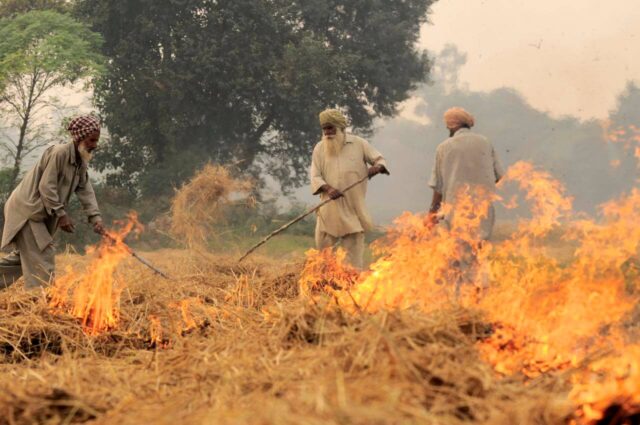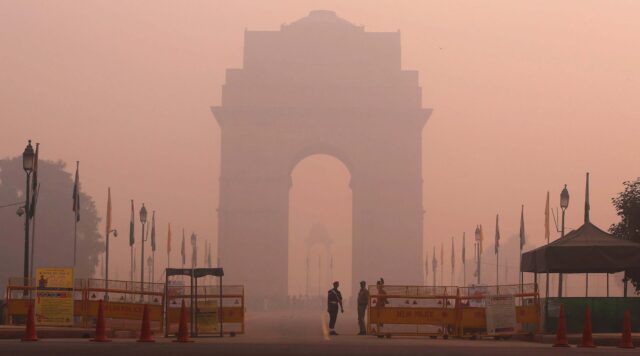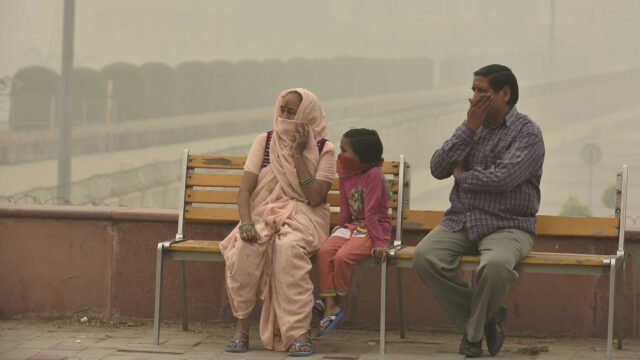It’s that time of the year again with the festive season knocking at our doors, woollens being taken out of the closets, and the formidable threat of the deadly smog and the unbearable levels of air pollution in North India on the cards.
No one today is really unfamiliar with the causes of this lethal air quality. The biggest culprit is believed to be the large-scale stubble burning carried out in the North, especially Punjab.
More than two decades have passed since we have realized the menace of pursuing stubble burning as a way of preparing the field for the next crop. But it was not until a few years ago that some of the current measures started materializing.

Measures Taken By The Government To Substitute Stubble Burning
Banning and penalizing this old tradition is not enough until supplemented with alternative and switchable substitutes. The Punjab government has come up with a super Straw Management System (SMS) and made it a mandatory purchase for all the owners of combine harvesters at decent subsidies.
Even if government statistics assuring distribution of around 26,607 crop residue management machines may seem lucrative and very thoughtful of the government, the reality is much grimmer.
Have These Measures Been Properly Implemented?
The tantalizing promise of appointing 8,000 nodal officers to keep a check on stubble burning is still on the papers. The government has also been lenient with the guilty farmers.
As per a report from India Today, subsidies guaranteed on the SMS machines have not reached the majority of the peasants. The government had further assured farmers incentives for not burning their crop residue. But again, most of the funds could not make it to the pockets of the deserving lot.
Why Does This Maneuver Lag Behind?
These enormous machines and ambitious schemes like solar-cum-biomass plants tend to forget about the small and medium farmers constituting more than three-fourth of the farming population.
Moreover, states like Punjab are dealing with overcapitalization of agricultural operations and the underutilization of the mechanizations due to declining farm size.
Therefore, the random distribution of machines along with extensive structural reforms makes no point unless it is feasible to the maximum masses without forcing the peasants to choose between the devil and the deep sea.
Read Also: This Startup Has Come Up With A Way To Help Bikers Combat The Pollution In Delhi
Is It Any Better This Year?
Despite some positive numbers coming up last year, this year, Punjab has witnessed a 67% rise in stubble burning in the period between 21 September and 26 October since the previous year.
The state officials have reasoned it out as a result of early sowing due to lockdown restrictions and a relatively dry season. They have also promised the total number to be lower once wheat cultivation is over.
But this year is not just about this usual annual disruption. We have another guest at hand, the novel coronavirus, to make things worse.
Existing Perils Of An Annual Smog Season

There is no scarcity of evidence to suggest the risk that air pollution poses to us. We have already witnessed a health emergency on account of the ‘airpocalypse’ last year. It has an overbearing capacity to expose us to health issues like asthma, heart attacks, lung cancer, vision impairment, and whatnot.
How Can Coronavirus Worsen The Impending Crisis?
The set-up is going to be much more taxing this time, given the rising number of coronavirus cases in India. Air pollution can reduce the immunity of a healthy body and turn a mild covid infection into a serious one, leading to a life-and-death situation.

What Needs To Be Done?
Besides all the state efforts to curb stubble burning, the Indian Agricultural Research Institute has come up with a bio-decomposer.
If it successfully clears the trials, it would convert the crop stubble into manure and end the need for any further incarceration. Arvind Kejriwal, in the meantime, has promised bio-decomposers free of cost, though the proposal is still on papers.
Be that as it may, the real trial will be that of the healthcare system once we approach the year ending, but for the time being, we need to think of something ‘unique yet viable’ to deal with this unprecedented double whammy.
Image Sources: Google Images
Sources: The Print, The Indian Express, Indian Today
Find the Blogger: @soumyaseema
This post is tagged under: delhi pollution, stubble burning, coronavirus delhi, governent lagging behind, delhi smog, bio-decomposer, Arvind Kejriwal, Harpal Singh Cheema, Atishi Marlena, comorbidities, AQI, crop residue management machines, rise in stubble burning, consequences of stubble burning on coronavirus, aap punjab, Punjab, Health hazards, flawed measures
Other Recommendations:
Which Is The Right Air Mask You Should Be Buying To Protect Yourself From Delhi’s Air Pollution






























